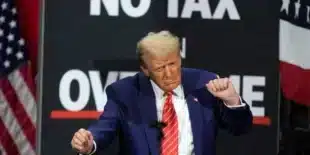German Chancellor Olaf Scholz commended a preliminary agreement between Serbia and the European Union, signed on Friday, which opens the door for the controversial excavation of lithium. This major project aims to reduce Europe’s reliance on China but has faced significant opposition from environmentalists and critics.
Scholz was present at a “critical raw materials summit” in Belgrade, where a memorandum of understanding was signed, establishing a “strategic partnership” between the EU and Serbia on sustainable raw materials, battery supply chains, and electric vehicles.
“This is an important European project,” Scholz remarked after the ceremony, emphasizing the need for Europe to remain independent in a shifting global landscape. He stressed the importance of discovering new raw material sources to avoid dependency on others.
“I’m glad the decision was made,” Scholz continued. “This decision required courage, but it was made at the right moment.”
Germany, being Europe’s largest car manufacturer, is keen on securing lithium supplies for its electric vehicle industry as the EU endeavors to lessen its reliance on Chinese imports. Lithium is essential for the production of batteries for electric vehicles, a market currently dominated by China.
“This project is beneficial because it will be developed in an environmentally friendly manner and will create economic prosperity where natural resources are available,” Scholz added.
Earlier this month, Serbia’s constitutional court reversed a previous decision to halt a $2.4 billion mining project by British-Australian mining company Rio Tinto in the Jadar valley, which is believed to contain Europe’s largest lithium deposit.
The Serbian government had initially canceled the excavation plans following significant public protests in 2021. Thousands of demonstrators blocked major roads and bridges in Belgrade and other parts of Serbia, voicing concerns over the environmental risks of Rio Tinto’s plans. These protests were one of the most significant challenges to President Aleksandar Vucic’s administration.
On Friday, a heavy police presence prevented protesters from approaching the government building where the signing ceremony took place.
Vucic has stated that lithium excavation will only proceed if automakers and battery manufacturers from Germany and other EU countries establish factories in Serbia, rather than exporting the raw materials directly.
“This day fills me with great hope for our country,” Vucic said. “This will be a turning point, a significant change, and a leap into Serbia’s future.”
While Serbia is pursuing EU membership, it has also maintained strong political and economic relationships with China and Russia, despite Russia’s actions in Ukraine. Analysts view the signed agreement as a significant boost for Vucic and his policies.
“I truly believe that we are creating a historic opportunity for Serbia and the EU,” said European Commission Vice President Maros Sefcovic, who signed the memorandum on behalf of the EU.


